Middle East
US foundation eyes takeover of Gaza aid | Israel-Palestine conflict News
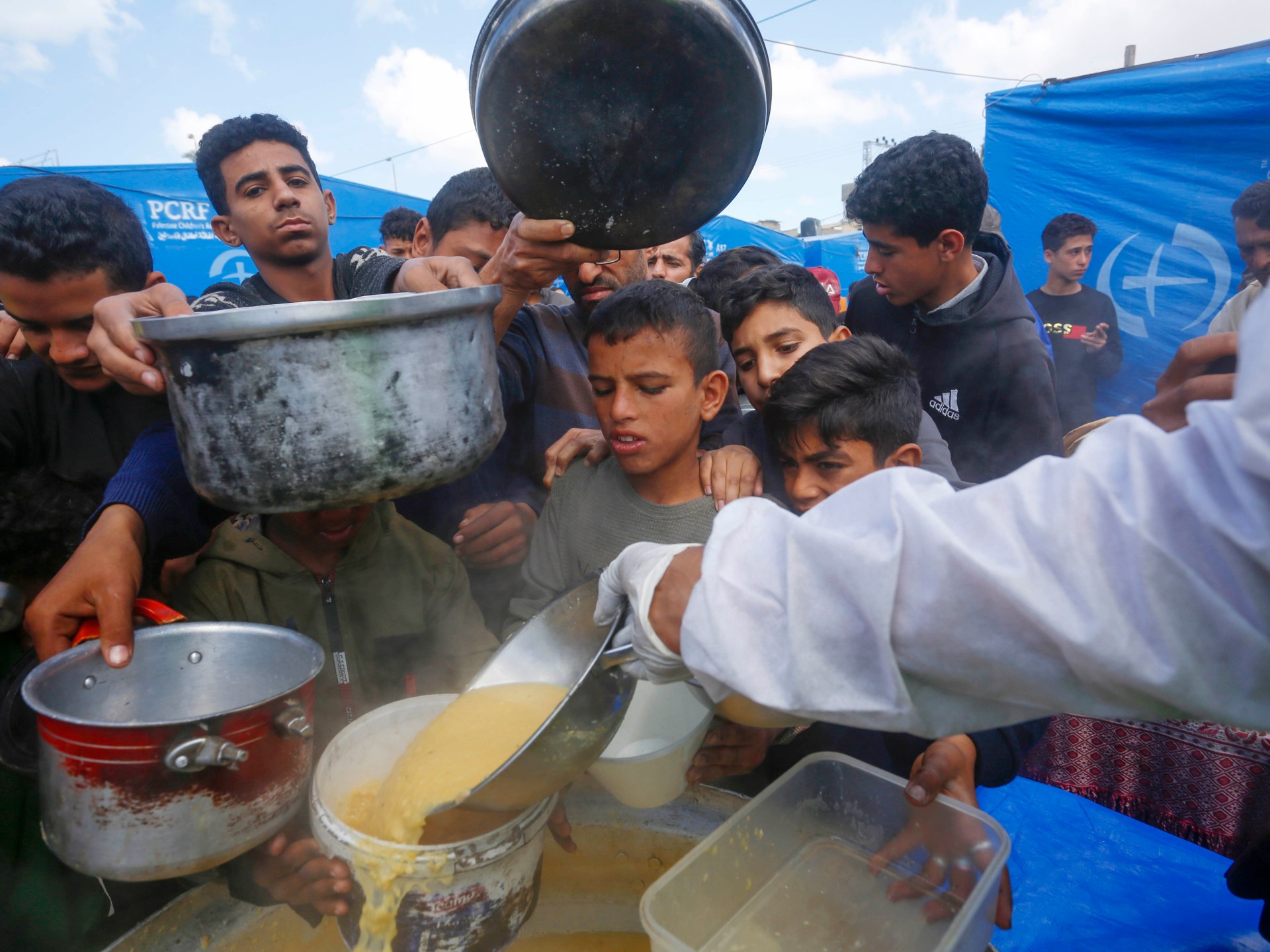
US-backed Gaza foundation proposal to keep aid from Hamas, but critics slam bypass of UN, Israeli threat to besieged Palestinian civilians.
The United States has said a new foundation is being established to coordinate aid deliveries to Gaza amid Israel’s two-month blockade.
US Ambassador to Israel Mike Huckabee told reporters on Friday that Israel would not be involved in distributing aid in the enclave but would provide security for the operations of the Gaza Humanitarian Foundation (GHF).
The plan for the “charitable” and “non-governmental” initiative was announced on Thursday by State Department spokeswoman Tammy Bruce. Although few details were revealed, it appears part of a US-Israeli push to take over the distribution of aid to prevent it from being diverted by Hamas and other groups.
The AP news agency reported that the newly created GHF had issued a proposal to implement a new aid distribution system, supplanting the current one run by the United Nations and other international aid agencies.
Reports claim that under the proposal, private contractors will be used to secure hubs where Palestinians will be required to gather to collect supplies.

Israel, which has halted the entry of all aid to Gaza since March 2, deepening the humanitarian crisis, has previously said it will not relax the blockade until a system is in place that gives it control over the distribution, insisting that supplies are used to support Hamas.
The intention to sideline the United Nations has drawn sharp criticism from humanitarian organisations, and it is unclear if the GHF proposal will ease those concerns.
Bruce promised further announcements regarding the proposal would follow soon. “I was hoping to introduce it today, but the foundation will be announcing this shortly,” she said.
The former executive director of the UN World Food Programme David Beasley is in talks with the US, Israel and other key players to head the GHF, reported US outlet Axis, quoting unnamed sources.
Israel’s blockade, implemented about two weeks before it resumed its bombardment of the enclave, has left Gaza’s 2.3 million Palestinians, most of whom have been displaced multiple times, desperately short of food, fuel, and medicine.
Israeli ‘aid plan’
The US plan appears to be designed along similar lines to a proposal approved by Israel’s security cabinet on Sunday.
Under the scheme, four “Secure Distribution Sites” would be constructed, each intended to serve 300,000 people. Palestinians expelled from northern Gaza would be forced to relocate to reach the centres.
The plan was met by sharp criticism from the UN and other aid groups, who noted that Palestinians have regularly come under attack from Israeli forces while collecting aid.
Addressing those concerns, Huckabee on Friday said “the most significant danger is not doing anything” and “people dying from hunger”.
The aid would be “distributed effectively, but also safely”, the US official insisted, according to Israeli daily Haaretz.
The decision to bypass international aid agencies comes amid growing alarm over famine-like conditions in the besieged territory, where Israel’s near-total blockade has cut off all essential supplies for almost three months.
At least 57 Palestinians have starved to death in Gaza, with most of the victims being children, as well as the sick and elderly.
UN humanitarian agency spokesperson Jens Laerke condemned the effort to dismantle existing aid structures on Tuesday.
“This appears to be a deliberate attempt to weaponise the aid,” he said. “It should be based solely on humanitarian need.”
Middle East
World could be witnessing ‘another Nakba’ in Palestine, UN committee warns | Israel-Palestine conflict News
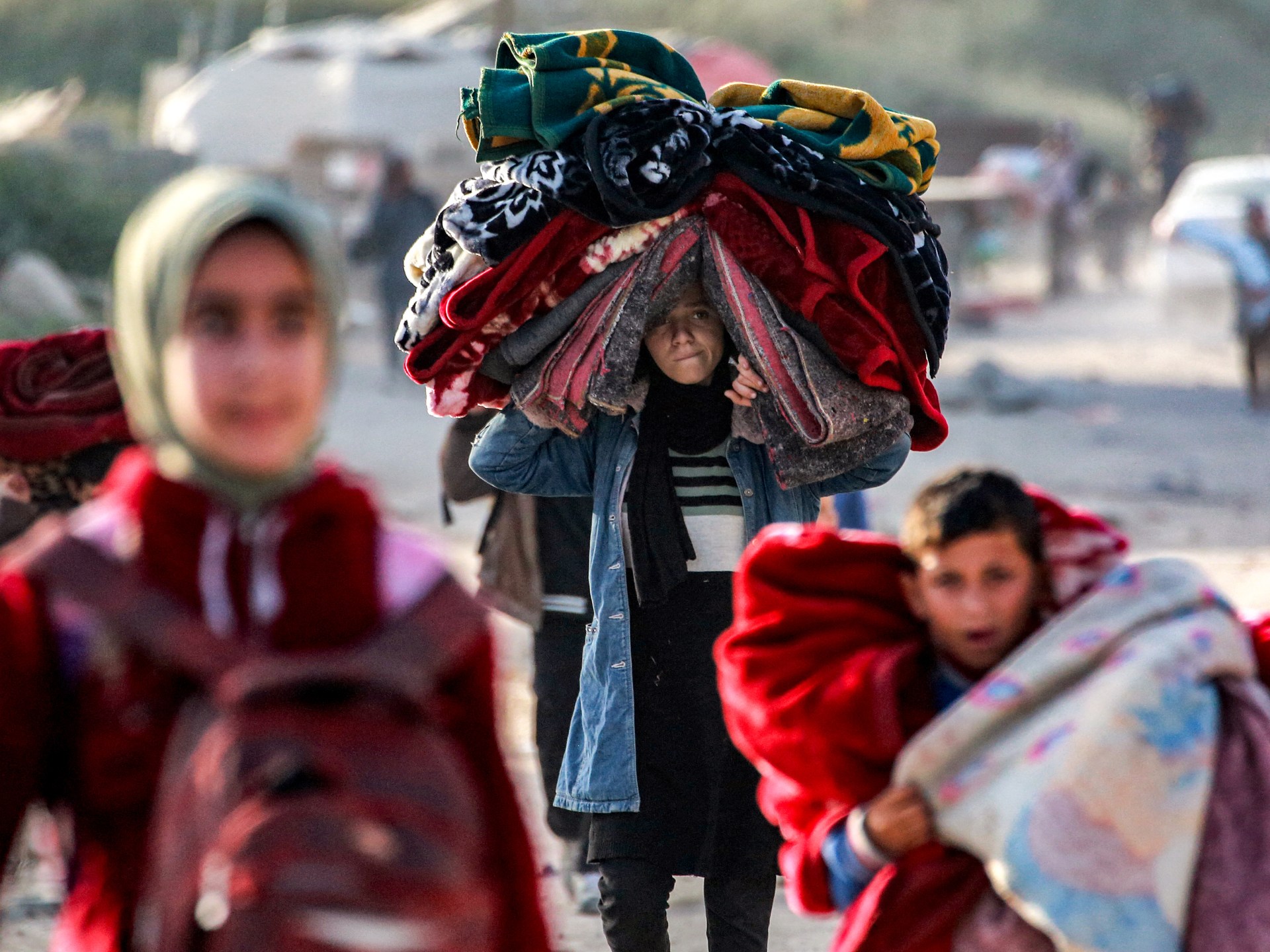
Israel’s priority is a ‘wider colonial expansion’, the committee on Israeli practices in occupied territories said.
The world could be witnessing “another Nakba”, or the expulsion of Palestinians, a United Nations special committee has warned.
The committee sounded the alarm on Friday, accusing Israel of “ethnic cleansing” and saying it was inflicting “unimaginable suffering” on Palestinians.
The comments come after Israel announced a plan earlier this week to expel hundreds of thousands of hungry Palestinians from the north of Gaza and confine them in six encampments.
For Palestinians, any forced displacement evokes memories of the “Nakba“, or catastrophe – the mass displacement that accompanied Israel’s creation in 1948.
“Israel continues to inflict unimaginable suffering on the people living under its occupation, whilst rapidly expanding confiscation of land as part of its wider colonial aspirations,” said the UN committee tasked with probing Israeli practices affecting Palestinian rights.
“What we are witnessing could very well be another Nakba,” the committee added, after concluding an annual mission to Amman.
“The goal of wider colonial expansion is clearly the priority of the government of Israel,” its report stated.
“Security operations are used as a smokescreen for rapid land grabbing, mass displacement, dispossession, demolitions, forced evictions and ethnic cleansing, in order to replace the Palestinian communities with Jewish settlers.”
‘Inhuman, degrading treatment’
The committee also noted Israel’s human rights violations against Palestinians.
“According to testimonies, it is evident that the use of torture and other cruel, inhuman or degrading treatment or punishment, including sexual violence, is a systematic practice of the Israeli army and security forces, and is widespread in Israeli prisons and military detention camps,” it said.
“The methods read as a playbook of how to try to humiliate, derogate, and strike fear into the hearts of individuals.”
The committee’s mission took place as Israel’s weeks-long total blockade of aid to Gaza continues.
“It is hard to imagine a world in which a government would implement such depraved policies to starve a population to death, whilst trucks of food are sitting only a few kilometres away,” the committee said.
“Yet, this is the sick reality for those in Gaza.”
The UN Special Committee to Investigate Israeli Practices Affecting the Human Rights of the Palestinian People and Other Arabs of the Occupied Territories was established by the UN General Assembly in December 1968.
During the formation of Israel in 1948, approximately 760,000 Palestinians fled or were driven from their homes in what became known as “the Nakba”.
The descendants of some 160,000 Palestinians who managed to remain in what became Israel presently make up about 20 percent of its population.
The committee is currently composed of the Sri Lankan, Malaysian and Senegalese ambassadors to the UN in New York.
Middle East
Syria’s Druze divided as sectarian tensions linger after violence | Syria’s War News
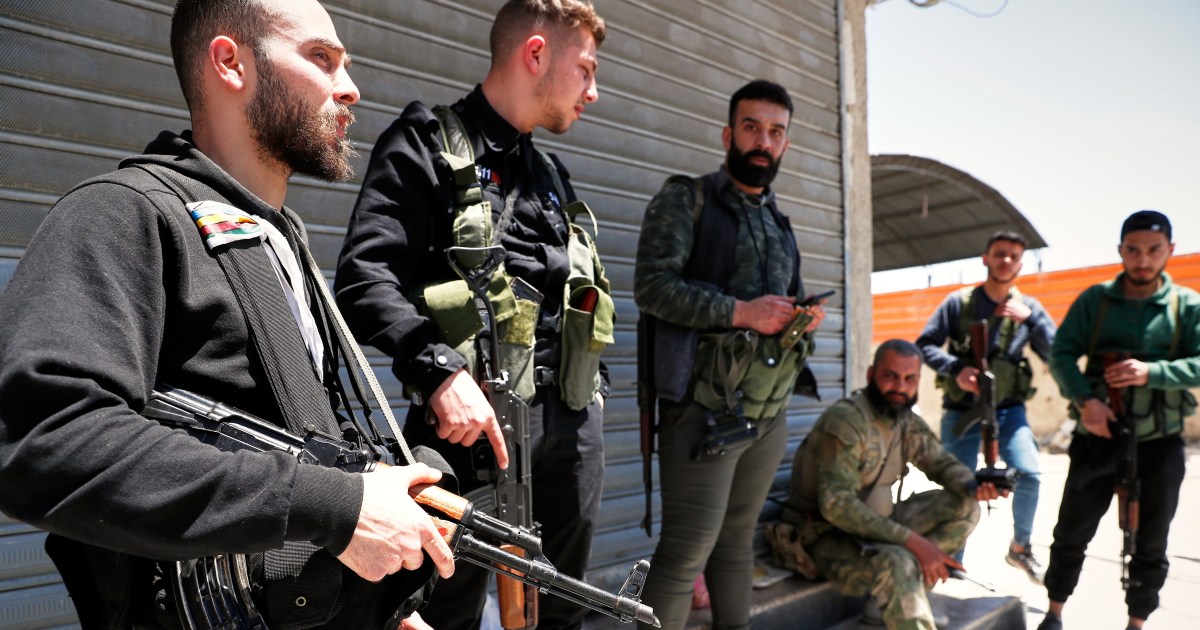
Instability has plagued Syria in the past two weeks after fighting broke out in two of Damascus’s suburbs and a southern governorate, drawing in government forces and non-state armed factions.
Using the unrest as a pretext, Israel also launched attacks on several locations in Syria.
The fighting and the Israeli attacks add to the difficulties faced by Syria’s new government – which only came to power after the fall of longtime dictator Bashar al-Assad – as it attempts to rebuild Syria after nearly 14 years of war.
The violence of that war has not fully subsided. Instead, the recent fighting has taken on a sectarian character, though locals also told Al Jazeera that some actors were motivated by power as they try to carve out spheres of influence in the new Syria.
Violence
The recent clashes began on April 28 in the town of Jaramana, on the outskirts of Damascus, before spreading to nearby Ashrafiyat Sahnaya and the southern governorate of Sweida, where many of the country’s Druze population live.
All of the areas have significant Druze populations, and the violence began after attackers were incensed by a blasphemous audio recording criticising the Prophet Muhammad, attributed to a religious leader from the minority group.
The religious leader denied the recording was in his voice, and an investigation by Syria’s Ministry of the Interior has concurred. But it mattered little, as fighting between local armed Druze groups and outsiders began.
The violence was followed by several Israeli attacks, including one near Syria’s presidential palace in Damascus. Syria’s government called it a “dangerous escalation”.
Israel’s military has struck Syria hundreds of times since the fall of al-Assad, while Syria has yet to retaliate and has indicated that it has been involved in non-direct talks with Israel to calm the situation.
Israel has attempted to portray its latest attacks in Syria as evidence that it is a defender of the Druze, many of whom live in Israel. Israeli Prime Minister Benjamin Netanyahu released a joint statement with Defense Minister Israel Katz, saying the attack was “a clear message to the Syrian regime: We will not allow [Syrian] forces to deploy south of Damascus or any threat to the Druze community.”
But many officials in Syria’s Druze community have expressed an openness to working with the new authority in Damascus and denied Israel’s overtures that claim to protect them.
Sources told Al Jazeera that these recent clashes have not altered that view on Israel.
“Israel is protecting its own interests,” Ali Jarbou, a professor at Damascus University and a member of a prominent Druze family, told Al Jazeera. “They are not protecting anyone. Not the Druze or anyone else.”
Experts have said Israel prefers to have weak states on its borders, and is therefore attacking Syria to weaken the new government and prevent it from exercising its power over the whole country. Allying with regional minority groups may also appear attractive to some in Israel, although a similar strategy in the past, most notably in Lebanon during the 1975-1990 civil war, failed.
But the Israeli government is also facing internal pressure to act from its own Druze community, the vast majority of whom are supportive of the Israeli state and serve in the Israeli army, despite being Arabic-speaking.
Druze diversity
The Druze community in the Middle East is split between Lebanon, Syria, Israel, and a small community in Jordan. They have played an influential role across these countries – in Syria, one of the leaders of the country’s independence was a famous Druze named Sultan al-Atrash.
Syria’s Druze are mostly split between the Israeli-occupied Golan Heights and Mount Hermon, Sweida (in an area called Jabal al-Druze, or Mountain of the Druze), and a couple of Damascus’s suburbs, while there is also a small community near Idlib.
Syrians in the occupied Golan Heights live under Israeli authority but most have rejected offers of Israeli citizenship. They’ve also historically been able to keep ties to Syria, sometimes studying in Damascus or marrying across the border, according to Tobias Lang, director of the Austrian Centre for Peace, who has extensively studied the Druze community in the Levant.
The Druze in Syria are, however, “very fragmented politically”, Lang said, due to years of life under the al-Assad dictatorship.
“No distinct Druze leadership was allowed to emerge, and the traditional leadership lost much of its power to the Baathist regime,” he said, referring to the Baath party, which ruled Syria from 1963 to 2024.
During the war in Syria, competing voices emerged within the Druze community. Some, like Hikmat al-Hijri, the top Druze religious figure in Syria, initially supported the al-Assad regime. Others, like Wahid al-Balous, founder of the Men of Dignity Movement, split off from the regime much earlier and refused to send local men to die in support of the government.
Al-Balous was later assassinated in 2015. Opposition figures blamed the regime.
In 2023, when antigovernment protests erupted in Sweida, al-Hijri finally turned against al-Assad and supported the local opposition.
Al-Hijri has also been sharply critical of the new Syrian authorities since the outbreak of violence last month, calling the attacks against the Druze a “genocidal campaign”.
“We no longer trust a group that calls itself a government, because the government doesn’t kill its own people through extremist gangs that are loyal to it, and after the massacre claims they are loose forces,” al-Hijri said.
The Syrian government has denied any involvement in the attacks on the Druze, and has instead emphasised that its forces have sought to provide security and prevent any further sectarian attacks.
‘We’re scared of our neighbours’
Agreements struck between local actors and the new government at the start of this month have ended the fighting for now. But dozens of people had been killed, many civilians among them.
In Jaramana, locals are still on high alert.
“We’re scared of our neighbours,” a resident told Al Jazeera, requesting anonymity for fear of retaliation against them or their family.
In the early days after the fall of al-Assad, places like Jaramana and Sweida were hesitant to work with the new Syrian government. Local leaders, some of whom are Druze notables, demanded a say in local governance and security matters.
But members of the Druze community have now been working with the central authority in Damascus to calm tensions, resolve disputes, and negotiate security arrangements.
Some of those agreements will see locals join the new government’s internal security force and police their own areas under the central government’s authority.
Still, locals are on edge after the clashes and fear they could restart. Locals told Al Jazeera that some Syrians, particularly from minority sects like the Druze, have had their faith in the new central authority shaken.
“Trust [in the new government] began to decrease after the events on the coast,” Jarbou said, referring to attacks in early March on Alawite – another minority community – in the coastal region after government forces were attacked. Hundreds were killed, many of them civilians, and while the government quickly announced an investigation into the attacks, the violence provided evidence for those fearful of the new order in Syria.
That is perhaps understandable after 14 years of war and more than five decades of brutal dictatorship.
“In other words, we can say that the war hasn’t stopped,” Jarbou said, adding that a serious, participatory political solution is needed for the country. Should that not come to pass, the current pattern of clashes and increased communal tensions will only worsen.
“Sedition is raging,” he said. “It’s not that we’re afraid of sedition. We’re in sedition now.”
Middle East
UAE denies supplying Sudan paramilitaries with Chinese arms | Sudan war News
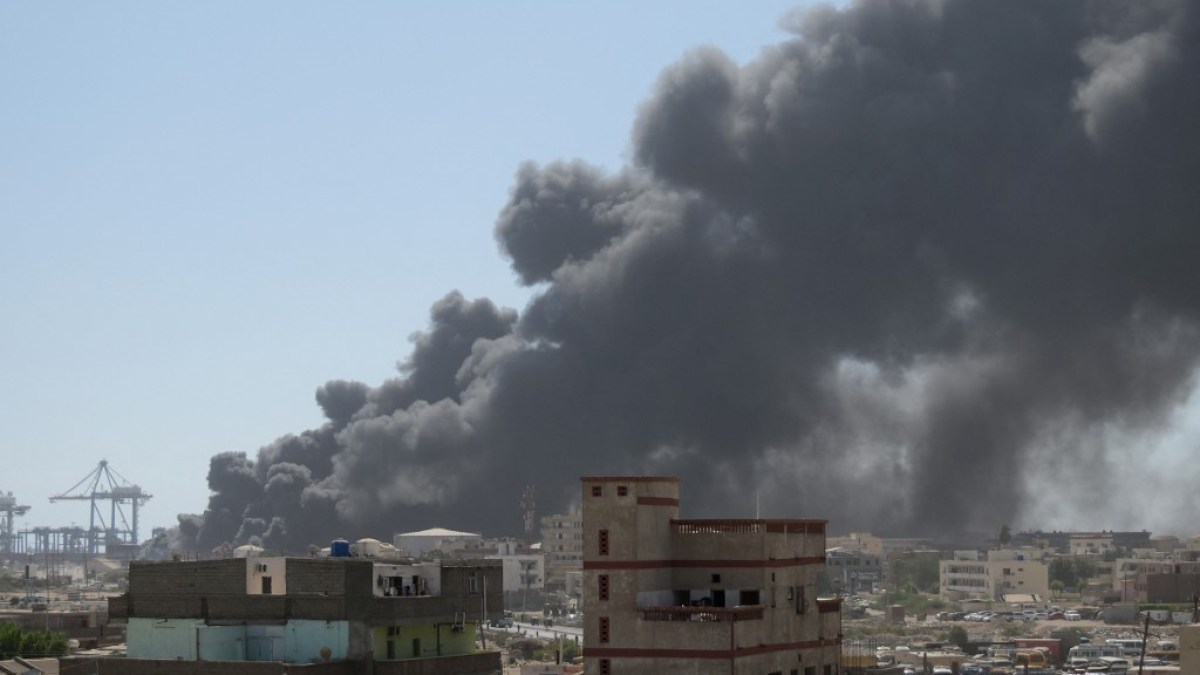
UAE says it “strongly rejects” accusations of arming Sudan’s paramilitary forces.
The United Arab Emirates (UAE) has denied supplying Chinese-made weapons to the paramilitary Rapid Support Forces (RSF), which is locked in a brutal conflict with Sudan’s military government.
Salem Aljaberi, the UAE’s assistant minister for security and military affairs, said on social media on Friday that the allegations, contained in an Amnesty International report released the previous day, are “baseless” and “lack substantiated evidence”.
Abu Dhabi has long rejected accusations – stemming from sources including the United Nations, United States, and NGOs – that it is arming the RSF.
“The UAE strongly rejects the suggestion that it is supplying weaponry to any party involved in the ongoing conflict in Sudan,” Aljaberi said in a statement shared by the Ministry of Foreign Affairs on X.
Statement by the #UAE Assistant Minister for Security and Military Affairs, HE Salem Aljaberi:
“The United Arab Emirates is aware of a misleading report published by a non-governmental organisation regarding allegations surrounding the presence of AH-4 howitzer systems in Sudan.…
— Afra Al Hameli (@AfraMalHameli) May 8, 2025
Amnesty said on Thursday that it had verified footage showing RSF fighters using Chinese GB50A guided bombs and 155mm AH-4 howitzers during attacks in Khartoum and Darfur.
According to the rights group, the UAE was the only known buyer of the howitzers from China, citing data from the Stockholm International Peace Research Institute.
Aljaberi dismissed the conclusion, saying the weapon system “has been available on the international market for nearly a decade” and was not exclusive to the UAE. He described the report as “misleading”.
New drones attacks on Port Sudan
Suffering a series of battlefield setbacks in recent weeks, the RSF has intensified its long-range drone attacks on areas controlled by the army.
The eastern city of Port Sudan has been a particular target and was hit for a sixth consecutive day on Friday. An army official, speaking to the AFP news agency anonymously, said air defences intercepted “enemy drones”.
Witnesses reported attacks damaging vital infrastructure, including the country’s only operational international airport, the largest fuel storage facility, and the main power station.
Port Sudan serves as the country’s principal aid hub. The war in Sudan has killed tens of thousands and displaced more than 13 million, creating the world’s worst humanitarian crisis, according to the UN.
UN Secretary-General Antonio Guterres warned the attacks “threaten to increase humanitarian needs and further complicate aid operations in the country”, according to his spokesperson.

Sudan’s Defence Minister Yassin Ibrahim on Tuesday accused the UAE of violating the country’s sovereignty by backing the RSF, and the military government announced it would cut diplomatic relations.
In response, Abu Dhabi denied supplying weapons and rejected the legitimacy of Sudan’s internationally recognised government.
Earlier this week, the International Court of Justice threw out Sudan’s lawsuit accusing the UAE of involvement in genocide, saying it does not have jurisdiction over the issues due to the Middle Eastern country’s exemption from Article 9 of the Genocide Convention.
UAE official Reem Ketait welcomed the ruling, calling it “clear and decisive”.
-

 Europe2 days ago
Europe2 days agoVance says Russia ‘asking for too much’ in concessions, while Trump says decisions ‘have to be made’ soon
-
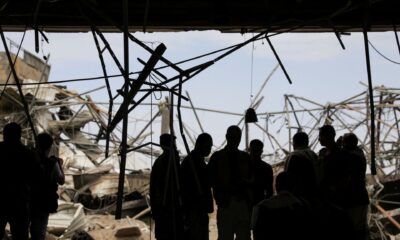
 Middle East2 days ago
Middle East2 days agoThe Take: What does Israel’s escalation with the Houthis mean for Yemen? | Houthis News
-
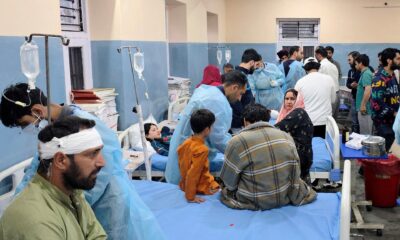
 Conflict Zones2 days ago
Conflict Zones2 days ago‘Don’t want war’: Kashmiri towns caught in deadly India-Pakistan crossfire | India-Pakistan Tensions
-
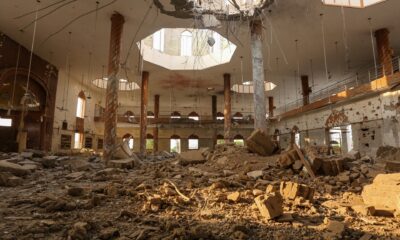
 Conflict Zones2 days ago
Conflict Zones2 days ago‘Nowhere to go’: Kashmir violence escalates amid India-Pakistan crossfire | Conflict News
-
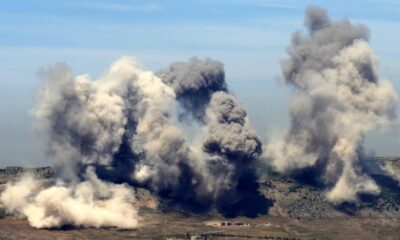
 Middle East1 day ago
Middle East1 day agoOne killed, eight wounded as Israel hits Lebanon in major post-truce attack | Israel attacks Lebanon News
-

 Conflict Zones1 day ago
Conflict Zones1 day agoHave India and Pakistan started a drone war? | Drone Strikes News
-

 Lifestyle1 day ago
Lifestyle1 day ago‘Long Way Home’ has Ewan McGregor and Charley Boorman riding in Europe
-

 Education1 day ago
Education1 day agoThe best and brightest young scientists are looking beyond the U.S. as cuts hit home




